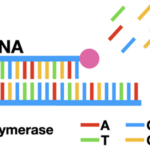Long-term Cognitive Decline in Older COVID-19 Survivors: A 2.5-Year Study
Introduction
The aftermath of COVID-19 has left a significant mark on public health, particularly among older adults. A recent study published in Nature Aging has shed light on the long-term cognitive effects of COVID-19 in individuals aged 60 and older. This research is crucial as it provides a comprehensive understanding of cognitive trajectories over 2.5 years in older adults who survived the initial SARS-CoV-2 infection.
The Study: An Overview
Conducted in Wuhan, China, this study followed 1,245 older COVID-19 survivors and 358 uninfected spouses. The primary objective was to track cognitive changes over 2.5 years post-infection. The study utilized the Telephone Interview for Cognitive Status-40 (TICS-40) to evaluate cognitive impairment.
Key Findings
Incidence of Cognitive Impairment: The study found that 19.1% of older COVID-19 survivors exhibited cognitive impairment 2.5 years after infection. The impairment was more pronounced in those who experienced severe COVID-19.
Cognitive Decline in Severe Cases: Individuals who had severe COVID-19 showed significant cognitive decline within the first year post-infection. However, the rate of decline decelerated in subsequent years.
Associated Risk Factors: Severe COVID-19, cognitive impairment at 6 months, and hypertension were identified as significant risk factors for long-term cognitive decline.
Cognitive Changes Over Time
The cognitive decline observed in this study was not uniform. During the first year, severe cases experienced a steep decline, but this trend slowed down between 12 and 30 months. Interestingly, while nonsevere cases and controls had comparable rates of decline during this period, severe cases showed a lower overall rate of decline due to some patients experiencing cognitive improvements.
Implications for Post-Infection Care
The study underscores the importance of continuous cognitive monitoring and care for older COVID-19 survivors, particularly those who had severe infections. Early identification and intervention are critical to managing cognitive impairment and mitigating long-term impacts.
Factors Influencing Cognitive Decline
Severe Illness: The severity of the initial COVID-19 infection was a major predictor of long-term cognitive outcomes. Patients with severe COVID-19 had higher rates of ICU admission, mechanical ventilation, and prolonged hospital stays, all contributing to cognitive decline.
Vascular Risk Factors: Hypertension, diabetes, and other vascular conditions were significantly associated with cognitive decline. These factors likely exacerbate the neurological impacts of COVID-19.
Initial Cognitive Impairment: Cognitive status at 6 months post-infection was a strong indicator of long-term cognitive health. Those with early impairment were more likely to experience progressive decline.
The Role of Delirium
Delirium during hospitalization was another critical factor linked to long-term cognitive impairment. Managing delirium effectively could help reduce the risk of subsequent cognitive issues.
Cognitive Improvement and Stability
While the study highlighted the risks of cognitive decline, it also noted instances of cognitive improvement, particularly among severe cases. This suggests that cognitive rehabilitation and targeted therapies could benefit some patients.
Limitations of the Study
The study had several limitations, including the lack of pre-infection cognitive data and the potential influence of other severe illnesses on cognitive outcomes. Despite these limitations, the findings provide valuable insights into the long-term effects of COVID-19 on older adults.
Conclusion
This study offers a crucial perspective on the long-term cognitive impacts of COVID-19 in older adults. It emphasizes the need for comprehensive post-infection care strategies to address cognitive health and improve quality of life for survivors. As the global population of COVID-19 survivors continues to grow, understanding and mitigating long-term cognitive effects will be essential in managing the broader public health implications of the pandemic.
Reference
Liu, Y.-H., Wu, Q.-X., Wang, Q.-H., Zhang, Q.-F., Tang, Y., Liu, D., Wang, J.-J., Liu, X.-Y., Wang, L.-R., Li, L., Xu, C., Zhu, J., & Wang, Y.-J. (2024). Tracking cognitive trajectories in older survivors of COVID-19 up to 2.5 years post-infection. Nature Aging. https://doi.org/10.1038/s43587-024-00667-3
Recent Blog Posts
-
 13 Jun 2025MTL Epitherapeutics and RI-MUHC Develop Early Prostate Cancer Blood Test
13 Jun 2025MTL Epitherapeutics and RI-MUHC Develop Early Prostate Cancer Blood Test -
 11 Jan 2025EpiAge Research Publication Signals a New Era in Understanding Biological Aging
11 Jan 2025EpiAge Research Publication Signals a New Era in Understanding Biological Aging -
 18 Nov 2024EpiMedtech Global Announces FDA Registration of EPIAGE, the First Epigenetic Age Test Registered by the FDA
18 Nov 2024EpiMedtech Global Announces FDA Registration of EPIAGE, the First Epigenetic Age Test Registered by the FDA -
 18 Nov 2024EpiMedTech Global Validates Unique epiCervix HPV Combo Test for Cervical Cancer Detection
18 Nov 2024EpiMedTech Global Validates Unique epiCervix HPV Combo Test for Cervical Cancer Detection -
 31 Oct 2024HKG epiTherapeutics’ MetaGen Genetic Risk Assessment Test Receives FDA Registration, Now Available in the U.S.
31 Oct 2024HKG epiTherapeutics’ MetaGen Genetic Risk Assessment Test Receives FDA Registration, Now Available in the U.S. -
 31 Oct 2024EpiMedTech Global Launches epiGeneComplete: A Breakthrough Genetic and Epigenetic Test for Comprehensive Health Diagnostics
31 Oct 2024EpiMedTech Global Launches epiGeneComplete: A Breakthrough Genetic and Epigenetic Test for Comprehensive Health Diagnostics -
 30 Oct 2024Enhanced Early Detection of Liver Cancer
30 Oct 2024Enhanced Early Detection of Liver Cancer -
 08 Oct 2024Are Microarrays Still Reliable? How Next-Generation Sequencing Outperforms Traditional Methods
08 Oct 2024Are Microarrays Still Reliable? How Next-Generation Sequencing Outperforms Traditional Methods



